Mumbai Diaries 26/11 ReviewIntroductionMumbai Diaries 26/11 is a Hindi-language medical drama television series on Amazon Prime Video. Together with Nikhil Gonsalves, Nikkhil Advani conceived and helmed the television series. The series was filmed at places such as Chhatrapati Shivaji Terminus, Gateway of India, and Leopold Caf�, which was involved in the 2008 Mumbai attacks. 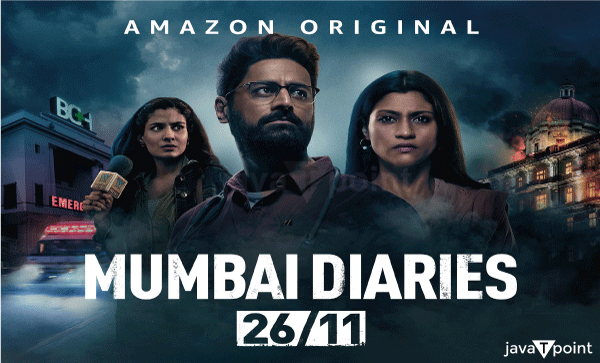
The show examines the difficulties encountered by the hospital's medical staff and other first responders in Mumbai as they attempt to manage a crisis of enormous proportions. The people repairing things are the most damaged in this fight to save lives and heal others. Mumbai Diaries 26/11's first season premiered on September 9, 2021, to universal praise from reviewers and viewers. It received a second season's renewal. Cast and CrewGenre:Medical Drama Dialogues By:Sanyukta Chawla Sheikh Screenplay By:Nikhil Gonsalves Anushka Mehrotra Yash Chetija Producers:Monisha Advani Madhu Bhojwani Executive Producer:Rameshchandra Yadav Cinematography:Kaushal Shah Editor:Maahir Zaveri Production Company:Emmay Entertainment Number of Seasons:1 Number of Episodes:8 Cast:Mohit Raina Language:Hindi Available on:Amazon Prime The Plot of the Series"Diagnosis" was the title of the first episode of the series. In this episode, new residents Diya, Sujata, and Ahaan arrive at Bombay General Hospital. They have teamed up with Dr. Kaushik Oberoi. Oberoi is a skilled and dedicated trauma surgeon who has previously run afoul of Chief Medical Officer Dr. Madhusudan Subramania for treating his patients excessively. Chitra Das, the social services director at the hospital and a former medical graduate with a troubling history, is another committed worker who goes above and beyond for her patients. We learn that the mentor of the three new residents, Dr. Kaushik, is about to leave for another hospital to keep his marriage to Ananya together. As the hospital staff considers this information, eleven young men ruthlessly seize control of Mumbai. The inhabitants see the scope of what is to come as more bodies arrive. The second episode of the series was titled "Complications." This episode demonstrates how everyone starts to worry about the safety of their loved ones as the situation in the city worsens, especially Kaushik and Diya. Kaushik's wife, Ananya, organizes events for Diya's father at the Palace Hotel, where she works. The concurrent attacks at the Palace Hotel are also discussed in the storyline, and Ananya and Dr. Parekh's parents are stuck there. The hospital staff begins working despite a serious lack of medical supplies and beds as badly injured casualties pour in. Along with police officers and members of the city's anti-terrorist team, citizens are also injured. Ahaan encounters a challenging scenario and finds it difficult to handle. The director of social services, Chitra, is concerned for Paramjeet, a long-time sufferer. 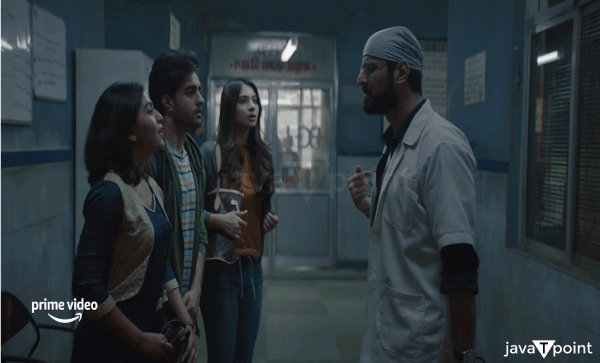
The film's third episode is named "Malignant." In this episode, we see that while everyone is worried about their safety and the safety of their loved ones, Mansi Hirani, a TV reporter who is among the media professionals hovering at the scene, is desperate to get breaking news even if it means using dishonest methods or risking her life. The show highlights how the live media coverage of the bombings greatly aided the terrorists through Mansi's persona. Kaushik and Diya are both concerned about their families at the same time. Mayank has been brought in wounded. He is cared for by Sujata. Two terrorists and top cops, Kelkar and Savarkar, are seriously wounded. Kaushik works to protect them. "Anatomy" is the title of the fourth episode in the series. Ahaan confides with Chitra about his history in this episode. Besides this, Ananya finds it difficult to control the terrified visitors while putting herself in danger. Mansi arrives at the hospital to get her breaking news. Samarth declines to assist her. Just in time, Chitra can diagnose Paramjeet. Mansi finds herself going the extra mile for her tale in the fifth episode, "Side Effects." Kaushik contends with the repercussions of failing to save ATS director Kelkar. Ananya begins her small-group evacuation of the visitors. As important information begins to slip out, Subramaniam and Tawde deal with the breach in the hospital. Vasu believes he knows the offender but finds it difficult to tell anyone. A bad turn occurs in the evening. The sixth episode is titled "Relapse." As the gunfire and devastation approach BGH, chaos breaks out within the hospital, as shown in this episode. Tawde and his group make an effort to contain it. Chitra and Mrs. Cherian assist Subramaniam and Kaushik as they remove patients after realizing they are alone. The hospital staff is furious with Mansi for her careless journalism. The seventh episode is titled "Remission". As the terrorists reassemble inside a ward, we see that the hospital is still under siege. Finally, assistance shows up as Tawde prepares to eliminate the terrorists. Kaushik and his group are faced with a sudden operation involving one of their own. Chitra must confront her anxieties. To remove the remaining guests, Ananya returns to the hotel. The siege ends after a horrific night, as seen in the last episode, "Recovery." We applaud the bravery of Kaushik and the team. Ananya and the NSG successfully evacuate the guests despite the terrorists' best attempts. Mansi is aware of the potential damage she may have brought about. After the terrifying three days of the assaults, Mumbai picks up the pieces and continues. At BGH, life continues. ReviewsRatings:8/10 Based on CriticsIt's become popular to describe actual terror attacks in the style of a suspenseful novel. In contrast to earlier depictions of the 26/11 Mumbai terror attacks, the program by filmmakers Nikkhil Advani and Nikhil Gonsalves places the action in a government hospital with few resources but plenty of talent and the human spirit. The setting is conducive to a dramatic, bloody account of the mind-numbing night and a more humanistic, logical, and sympathetic assessment of the crises that resulted in the deaths of 174 people (including nine assailants). Advani and his cast and crew don't disappoint and meticulously negotiate 60+ hours of horror to stitch together an eight-episode series that is, for the most part, fascinating. The film is made in the popular idiom, where you are supposed first to be involved and then get delighted by a true human tragedy. The hospital was the view that no one ever saw the conflict through, via doctors who fought to preserve lives on the edge of dying. More than the terrorists invading the city, Mumbai Diaries 26/11 is about the first responders who risked everything to stand up that night for those gasping for air. 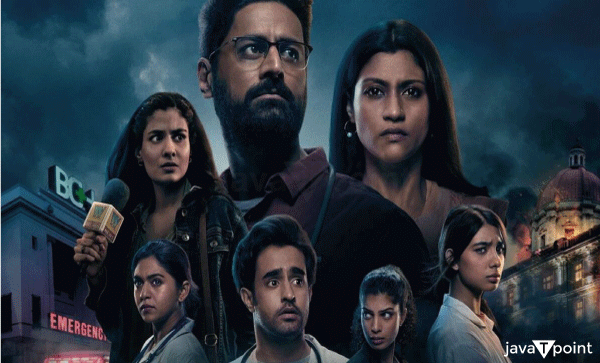
Like physicians, writers Yash Chhetija, Nikhil Gonsalves, and Anushka Mehrotra begin their workdays. They arrive at where the frontline soldiers entered the conflict because we know what had transpired and how it was a collective failure. The Bombay General Hospital, a character unto itself, is shown to us. Nearly old enough to collapse yet enduring storms, a metaphor for the internal structure that is falling apart. The show begins as a medical thriller before moving on to other terrorist-hit areas and making insightful observations on our healthcare system and the media's role in a national emergency. It makes a point about how government hospitals are still the only option for the needy and the underprivileged while also raising questions about medical ethics in a subdued manner. Of course, there are also bullet points with ink-spattered markers underlining them, such as the societal prejudice against a Muslim doctor and the fact that a female doctor is not treated equally to her male counterpart. The way the authors infused the heroes' backstories into the tale is another intriguing feature. It provides insight into the inner demons they are battling and, to a certain extent, offers relief from the barrage of gunshots. We first meet the physician and his three new trainees just hours before the apocalypse begins; they are both thrilled and terrified by what they are about to embark on. The quest to rescue lives starts once a little stroll through the backstories has satisfied your curiosity. The struggle to care for each sufferer, to value each breath, takes center stage. Nikkhil Advani and Nikhil Gonsalves' directing is to arouse your emotions. They don't pass off the drama as a documentary; instead, they start firing emotional bullets at you when needed. They are helped by the production design by Priya Suhas, which breathes life into every nook and cranny of this enterprise. The addition of Kaushal Shah's camera makes it much better. He uses long shots to depict the tension as people rush to save lives. To maintain a realistic feel, he pushes and jerks the camera. Full points to this. Sanyukta Chawla Sheikh also deserves praise since she needs to consider the audience demographics when writing the discourse. When two people from the same region speak, they do it in their language, not broken Hindi. Mumbai is a city that thrives on variety. The flawless casting enhances the writing's excellence. The actors' body language and skillful use of medical terminology give the proceedings a genuine feel. As Dr. Kaushik Oberoi, who believes saving human life is more essential than determining its character, Mohit Raina is convincing. Oberoi is a unique breed of talented professional who follows their heart, and Raina gives the character life. Konkona Sen Sharma stands out among the rest of the actors as the social services director whose tumultuous history hasn't dimmed her compassion for the weak. No amount of makeup could have represented the staff's weariness better than the way she shifts her shoulder in between the mayhem. Mrunmayee Deshpande, Natasha Bharadwaj, and Satyajeet Dubey act as the youthful inhabitants and make sure nothing goes wrong. However, Tina Desai, who plays the adventurous F B manager of Palace Hotel, Ananya Ghosh, steals the show with a natural performance. As the journalist seeking TRP, Shreya Dhanwanthary is also okay. With editor Maahir Zaveri, Mohammad Amin Khatib's raw and gritty action choreography ensures that the final two episodes steal our breath. Vijay Ghodke, the film's art director, ensures that the setting of a dilapidated general hospital doesn't appear artificial. Cinematographer Kaushal Shah's footage blends with the pictures in our memories even though there are many films of the assaults in the public domain. However, the relationship between the cause and the craft can be challenging. After a while, the show develops a pattern where a character's backstory follows each shootout. It implies that text is typed in the corner of the screen every few minutes with the jerky typewriter sound as a background to let you know where you are. It annoys. 
The journalist's changing nail polish throughout the attack had the same effect. Before entering the final act, the show suffers a little setback. Now that fewer patients are coming in, we are preparing for the end to come quickly. But what suffers is the time spent preparing. Long forgotten is Tina Desai, who portrays Ananya, Kaushik's wife. You will like her character even though she is trapped in the hotel that the terrorists have taken hostage. The show is also eager to make overarching implications about religion and the banality of evil, which is why the terrorist in Pakistan is playing sweetly with his daughter. At the same time, he instructs his guys to carry out as many killings as possible. A significant character also discusses the reality that hates and violence have no religion. Her family was slaughtered in the 1984 anti-Sikh riots, which Hindus started. Although it is a crucial and well-intended message, it comes off as forced and unnaturally added to the story. When the societal critique is woven into the story, such as in a sequence where we are informed that the VIP syndrome persists even after death, Mumbai Diaries 26/11 is far more effective. Rescue efforts are therefore switched from the government hospital, where life is expensive, to the Palace Hotel, where wealthy individuals are being attacked. It is repulsive. Overall, Mumbai Diaries 26/11 is the journal of a person skilled at subtly hiding his true feelings. To cram in too much action and drama, the series tries to be hard-hitting while showing that it was created with a lot of blood and sweat. You're inside a pressure cooker while you watch this show. The sadness overwhelms some areas, and the strain is nearly intolerable. Based on ViewersMost viewers cheer for the Mumbai Diaries 26/11 series. But like many other films and OTT shows, this one, too, received some negative feedback from viewers. Nevertheless, the audience's reaction to this film was very positive. One of the viewers who watched the complete series and expressed his opinions noted that it was a well-made series with a superb cast that outdid themselves with their focused performances. The segment of society that wants anything else than harmony is mostly responsible for the low ratings. Another reviewer stated that while the series does have its flaws, the acting, settings, and camera work are the only things that cannot be disputed. The plot could be more coherent, disorganized, and heavily dependent on the emotional responses of the individuals and their backstories. A spectator sent many words complimenting the show. He said this series is a joy to watch, from the storyline, screenplay, characters, and performances, to the photography director. No one could connect to this series more than the family who had experienced the horror on November 11, 2008, which was the greatest nightmare for the entire nation, especially for Mumbaikars. However, if you are not from Mumbai and are still watching it and feel as though everything is occurring right in front of you, if this series manages to persuade you that you are in the center of the turmoil, then the Mumbai Diaries 26/11 crew has indeed been able to win your heart! There have been several television shows and documentaries on 26/11 that depict the bloody, terrifying, angry, and terror-filled day, but this is the first time someone has shown the faces of genuine heroes?the police officers and hospital staff who work on the front lines. How could we overlook the media, the most significant factor in why everything has become so complex in real life and on-screen? His opinion continues: "By selecting this idea, the producers had already engaged my thoughts and had persuaded me to watch this, and it was well worth it." 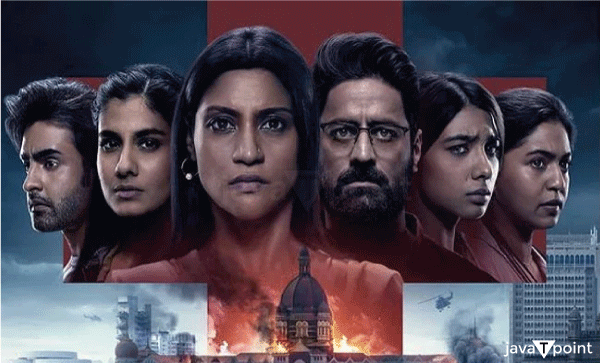
Regarding some other supportive viewer comments, one of them stated that, as a huge admirer of medical thrillers, Mumbai Diaries 26/11 established a new, extremely high standard for him that could be difficult to achieve. With a compelling plot set against the September 11 and September 11, 2011 attacks, this series never fails to keep viewers on the edge of their seats. Since no loose ends exist, the creators deeply explored every plot aspect. The television show had some average viewer ratings as well. After watching the show, one of the viewers wrote about his thoughts, saying that the creators had jumbled together information about the Mumbai attacks. Technically, it is quite sound, and some parts will immerse you in the action. The action sequences, excitement, acting, set, props, prosthetics, and directing are all high quality. The series is lengthy and tedious since there are many pointless plots and situations. The series is an addition to other films and television shows on the Mumbai attacks. Although certain subplots regarding caste and religious prejudice felt forced and unnatural, another commenter with an average rating said that the series was decent overall. Every character has a final purpose. My only problem is that the journalist skipped over certain situations involving her, which made me quite unhappy with her tale. According to her, that was prioritized differently than the other storylines. When we witness police, physicians, and hotel management genuinely risking their lives to save others, it is difficult to care about a journalist risking her life for fame and credit. Let's now discuss the criticism that the series received. One of them said that the physicians trying to recreate the events of 9/11 didn't have a feeling of urgency. The physicians are taking time to talk on the phone, stop and stare for no apparent purpose, and more while there appear to be several casualties arriving, and they appear to be understaffed. The heart of the idea is executed horribly. Another similar criticism stated that after viewing, the viewer wanted to award this poor series three stars but ultimately took away two more for their monkey balance to demonstrate how wonderful or horrible all faiths are. Depicting Sikhs being killed subtly by Hindus rather than by Congress supporters. One said that he couldn't understand why this was named 26/11 Mumbai Diaries when it was about some obscure hospital. At the same time, another claimed that the show insulted the heroic police and physicians who responded to the attack on November 26, 2018. Overall, "Mumbai Diaries 26/11" has elicited a range of reactions from viewers. While some viewers value its realistic depiction of the horrific terrorist events in Mumbai in 2008, others believe it is deficient in several areas. The compelling acting and accurate portrayal of the events give the story a feeling of reality that perfectly captures the sorrow and bravery of those crucial days. There have been complaints about the pacing and character development, with several arcs appearing hurried or undeveloped. Despite its imperfections, the series is a moving ode to Mumbai and its residents' tenacity, leaving viewers with a lasting impression. ConclusionThere has been a range of reactions to "Mumbai Diaries 26/11" from both reviewers and audiences. The series has received praise from certain commentators for its accurate depiction of the 2008 Mumbai terrorist attacks, complimenting the actors and the program's capacity to convey the confusion and courage of the events. Additionally praised are the realistic cinematography and meticulous attention to detail. 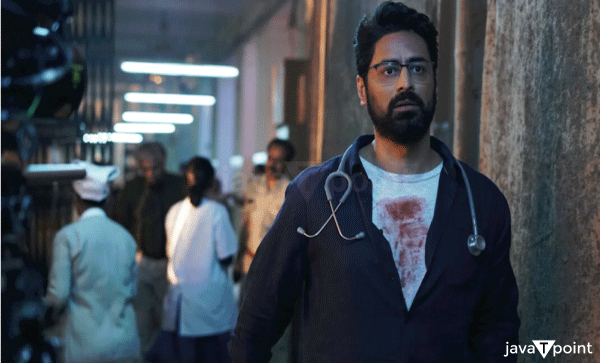
However, some people think that the pace and character development of the series could be better. Some viewers claim that some plotlines were hurried or superficial, which prevented them from empathizing fully with the characters. Despite these complaints, many people praised the touching impact and the tribute given to the resilient city of Mumbai. Audiences' reactions to "Mumbai Diaries 26/11" often vary, evoking appreciation and disappointment.
Next TopicMosagallu movie Review
|
 For Videos Join Our Youtube Channel: Join Now
For Videos Join Our Youtube Channel: Join Now
Feedback
- Send your Feedback to [email protected]
Help Others, Please Share









